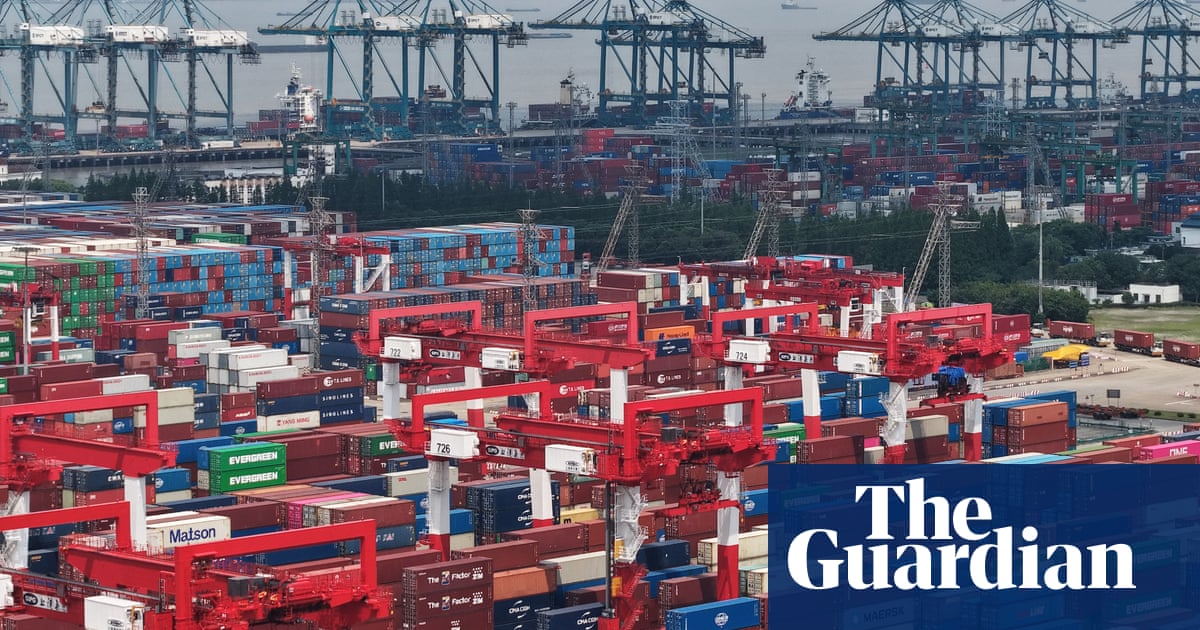Thedraft trade agreement with Chinaannounced byDonald Trumpon Wednesday would ease concerns from top US military suppliers about rare-earth metals and magnets that, if cut off permanently, could hobble production of everything from smart bombs to fighter jets to submarines and other weapons in the US arsenal.
While the deal has not yet been finalised, it may reassure major defense companies such as Lockheed Martin, the largest US user of samarium – a rare-earth metal used in military-grade magnets – whose supply is entirely controlled byChina.
The issue of China’s export restrictions on the metals and magnets was so important that Trump specifically mentioned them as part of his announcement of a broader trade agreement withChinathat would reduce US tariffs to 55% and Chinese tariffs to 10%.
“Our deal with China is done, subject to final approval with President Xi and me,” Trump wrote. “Full magnets, and any necessary rare earths, will be supplied, up front, by China.”
Rare earths are crucialto the production of F-35 fighter jets, Virginia- and Columbia-class nuclear-powered submarines, Tomahawk missiles, radar systems, unmanned aerial vehicles and smart bombs, according to Gracelin Baskaran of the Center for Strategic and International Studies, a thinktank.
China in April imposed export restrictions on seven rare earth elements during the tough negotiations over Trump’s new tariffs. China also targeted the aerospace and defense industries by limiting 15 US entities with ties to the industry from receiving dual-use goods.
“The United States is already on the back foot when it comes to manufacturing these defense technologies,” Baskaransaid in an interviewpublished by CSIS. “China is rapidly expanding its munitions production and acquiring advanced weapons systems and equipment at a pace five to six times faster than the United States. While China is preparing with a wartime mindset, the United States continues to operate under peacetime conditions.”
Trump has amassed a team of foreign policy China hawks, including a number who have warned that the US should focus more on the pacing threat posed by China over the coming decades instead of current conflicts in Ukraine or the Middle East.
“Even before the latest restrictions, the US defense industrial base struggled with limited capacity and lacked the ability to scale up production to meet defense technology demands,” she continued. “Further bans on critical minerals inputs will only widen the gap, enabling China to strengthen its military capabilities more quickly than the United States.”
China and the United States had agreed last month in Geneva to pause the implementation of sky-high tariffs that would have delivered a severe economic blow to manufacturers and consumers in the US, as well as exporters in China.
But China maintained export licenses on rare-earth metals used by both defense producers and carmakers that threatened to upend global supply chains and imperil production in the United States.
In particular, China has a stranglehold on the production and export of samarium, a magnet used in combination with cobalt to provide highly durable magnets used to withstand the intense temperatures in military-grade tech. China produces the entire world’s supply of the rare-earth metal.
Sign up toThis Week in Trumpland
A deep dive into the policies, controversies and oddities surrounding the Trump administration
after newsletter promotion
In particular, the magnets are important for the production of guided missiles, satellite-guided “smart bombs”, and aircrafts, including fighter jets, according to Apex Magnets, a supplier.
Those supplies of weapons have been depleted through deliveries of missiles and other ordnance to Ukraine and to the Israeli military. Pentagon planners and other officials in the administration of Joe Biden, regularly squared off over whether foreign weapons deliveries expose a US vulnerability in case it faced off with a major military power.
In order to break the deadlock, secretary of stateMarco Rubioalso abruptly announced plans to cancel hundreds of thousands of visas for Chinese students in the United States. While publicly that was said as a plan to root out Chinese spies in US higher education,Axios reportedthat the visa ban was also motivated by China’s obstinance on resuming rare earths exports.
The breakthrough comes as Trump is planning to displayUS militaryprowess at a parade in Washington DC this weekend that has been seen as an attempt to flex American muscle and reinforce the US president’s bonafides as a supporter of the military.
Trump in 2019 ordered the Pentagon to find new sources of procuring rare earth minerals, in particular samarium, because the US did not have the capacity to produce them domestically. The initiative was “essential to the national defense”, he said then.
